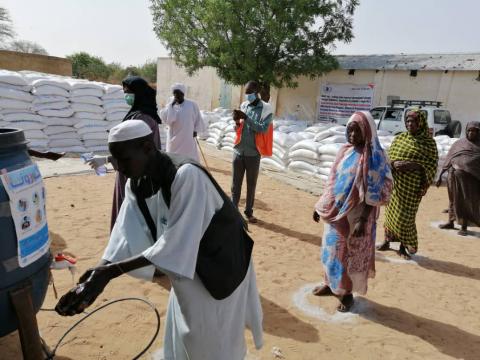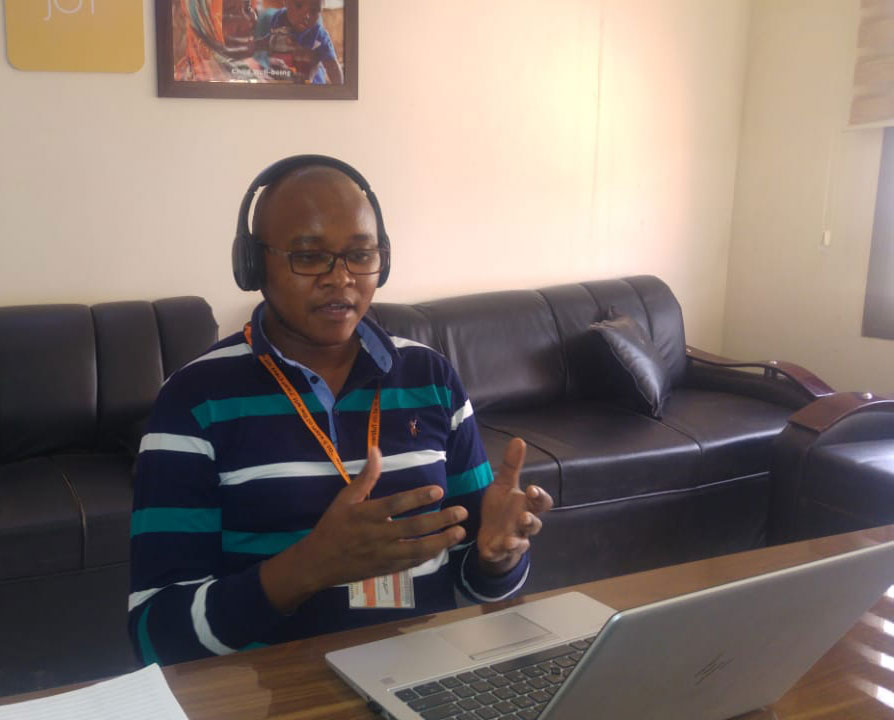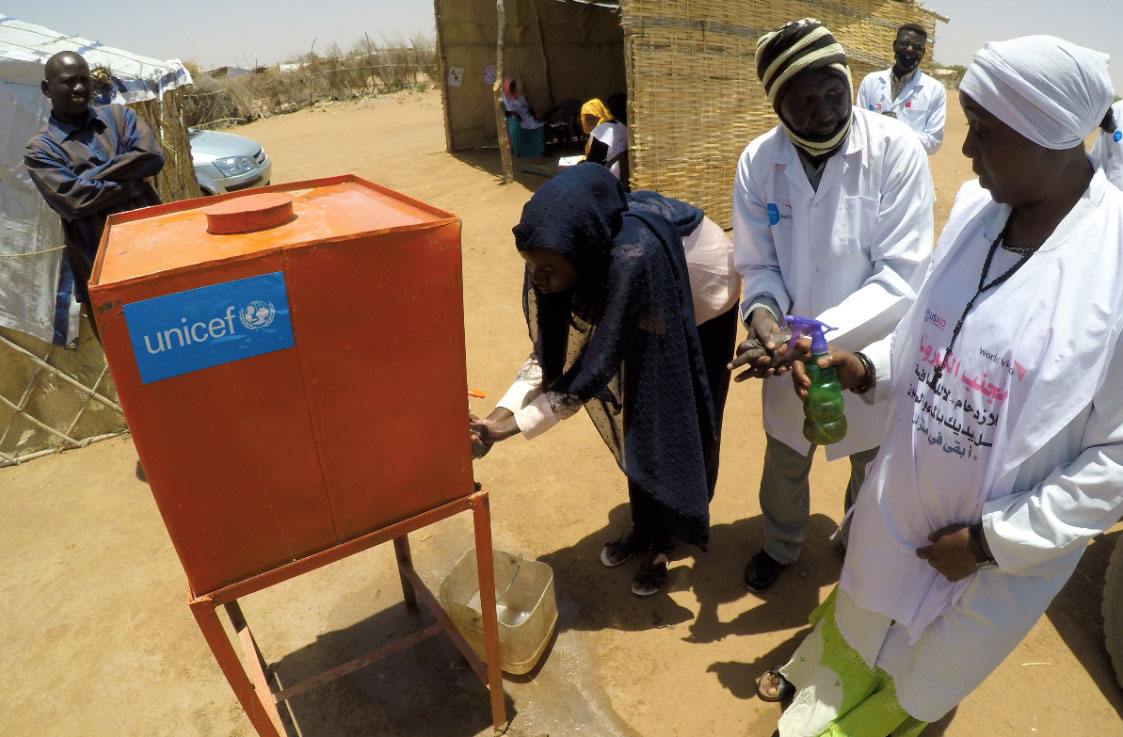The biggest concern with COVID-19 now is not so much the lack of knowledge, but changing attitudes and behaviours

Sudan recorded its first COVID-19 case on 14 March, and since then the number of infections has continued to rise. With increased testing, the number of confirmed cases has been rising even more over recent weeks. As of 1 June 2020, the Federal Ministry of Health had confirmed 5,310 cases including 307 associated deaths and 1,625 recoveries.
Humanitarian agencies are closely coordinating to support the Government of Sudan in its response to the highly infectious disease, and alleviate the impact on the most vulnerable.
A country preparedness and response plan (CPRP) to facilitate a coordinated response to COVID-19 was launched in April, by the Government with support from the World Health Organization (WHO) and other humanitarian agencies.
World Vision is actively represented in two of the eight COVID-19 response pillars; these are: the Risk Communication and Community Engagement (RCCE), and the Infection Prevention and Control (IPC) pillars.
Martin Mutisya, is World Vision's Sudan WASH Programme Manager, currently based in the capital Khartoum. Since mid-March Mutisya has been participating in activities linked to the two pillars, and in WASH clusters. “Each week we meet virtually to review progress, emerging trends, challenges, draw lessons and chart the way forward.”, he says.

The RCCE pillar led by UNICEF is responsible for coordinating the development of key messages in line with what needs to be communicated about COVID-19.
“These virtual meetings bring together like-minded organisations and are a great example of how agencies are working together- despite the current prevailing challenges to deliver a coordinated response to address COVID-19 needs. They contribute to informing some of the plans we have,” Jimmy Nadapdap, World Vision's Operations Director for Sudan explains.
Additionally, since the beginning of the COVID-19 response in March, World Vision has been supporting risk communication activities in East Darfur, South Darfur, Blue Nile and South Kordofan. With the support of local Partners and trained health workers, an estimated 200,000 people have been reached with messages on COVID-19 risks broadcasted through community radios, mosques, and megaphones mounted on mobile vehicles.
COVID-19 messages have also been disseminated through printed information, education and communication materials distributed to the public, or pinned on walls in public places.

Bridging the knowledge and practice gap
The risk awareness campaigns have been helpful in increasing the public’s awareness levels on COVID-19 as well as contributing to the efforts to reduce the spread of the virus, according to Mutisya.
But one thing worries him.
“One thing I have been reflecting on is how to better achieve the desired behaviour change," Mutisya says.
“I think the biggest gap right now is not that people don't have the knowledge about COVID-19, what happens if they contract the virus, or what to do when they contract it,” he quips. While there might still be knowledge gaps especially in remote areas, what especially worries me now is the practice of the knowledge and behaviours being promoted,” he states.
A number of factors are hindering the practice of knowledge being shared, attitudes and behaviour change. “COVID-19 came with a heavy economic, emotional and social burden that disrupted the day-to-day lives of people, and I imagine this has contributed to people’s attitudes and behaviours,” Mutisya further observes.
Afaf Fadl, World Vision's Health and Nutrition Focal Point for the COVID-19 Emergency Response in Sudan, also represents World Vision in the health clusters led by WHO. She thinks that some of the containment measures to curb the spread of the virus such as social distancing and stay-at-home might have been perceived as unusual by most Sudanese.
“There is also the fact that some families live in spaces that are either too small or too crowded; which makes physical or social distancing particularly challenging,” she adds. “But let’s remember that this is behaviour which takes some time to adapt."
"I remain hopeful. We continue to do our best to address some of the gaps between knowledge and practice. World Vision is promoting and reinforcing preventive behaviour practices in project sites, including food distribution sites and among our staff in the offices. ”
World Vision is continuously engaging with trusted community influencers such as faith leaders to support our efforts in promoting both mindset and behaviour change. “We are working together to debunk myths, rumours and misinformation about COVID-19, so that people receive the right messages as intended, understand them, and take appropriate action,” Mutisya explains.
We are also focusing more on positive messages that persuade and encourage the public to do the right thing for their best interest, and that of their families and communities, as opposed to focusing on the rules.
More on World Vision's response to COVID-19 in Sudan
World Vision supports a dozen of primary healthcare clinics in South Darfur, South Kordofan, Blue Nile and East Darfur, to continue providing essential healthcare services while scaling up to respond to COVID-19 needs.
These services are available for the most vulnerable groups such as internally displaced persons and refugees. Watch this video by our Partner UNICEF to see some of World Vision's COVID-19 response in a clinic providing services to refugees.
The continued spread of COVID-19 in Sudan has also put a strain on many families’ livelihoods. World Vision continues to provide food and cash-based assistance to target households, in partnership with the World Food Programme, to cushion households from the effects of the pandemic.
Reflections by frontline staff, interviewed and written by Lucy Murunga, for World Vision in Sudan
-ENDS-